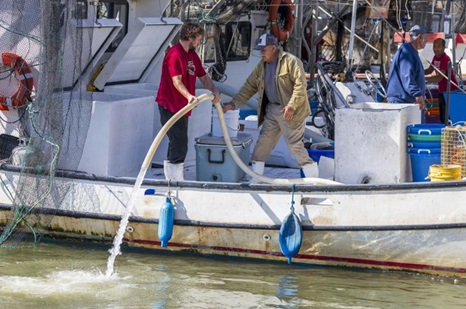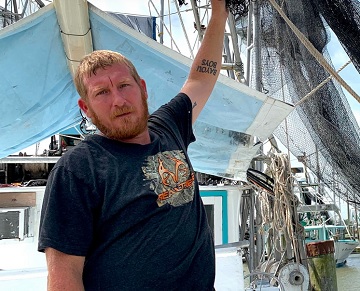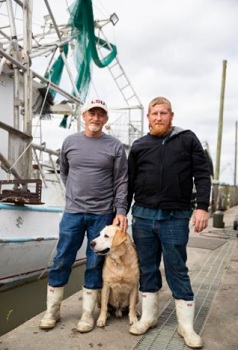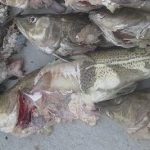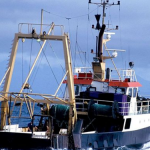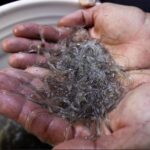Tag Archives: Louisiana Shrimp Association
Louisiana Shrimp Association reacts to proposed act that aims to help industry
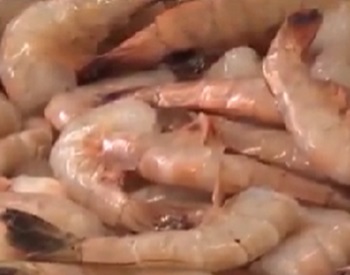 Louisiana Shrimp Association President Acy Cooper has worked tirelessly to be a voice for Louisiana shrimpers whose livelihoods have been derailed by imported products. After hearing about the introduction of the Save Our Shrimpers Act of 2024, he is hoping this can be a step in the right direction for the once thriving industry. If passed, the act would prohibit federal funds to international financial institutions subsidizing foreign activity relating to shrimp farming, processing or exporting to the United States. Video, more, >>CLICK TO READ<< 07:46
Louisiana Shrimp Association President Acy Cooper has worked tirelessly to be a voice for Louisiana shrimpers whose livelihoods have been derailed by imported products. After hearing about the introduction of the Save Our Shrimpers Act of 2024, he is hoping this can be a step in the right direction for the once thriving industry. If passed, the act would prohibit federal funds to international financial institutions subsidizing foreign activity relating to shrimp farming, processing or exporting to the United States. Video, more, >>CLICK TO READ<< 07:46
Foreign seafood could be banned at Louisiana schools
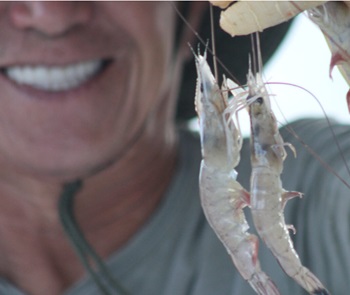 Students could be guaranteed domestic catch when seafood is on the school menu if a proposal before the Louisiana Legislature becomes law. The state House approved a bill Tuesday that would prohibit any public or private schools that receive state money from serving foreign seafood to students. House Bill 429, sponsored by Rep. Marcus Bryant, D-New Iberia, passed in a 94-7 vote with bipartisan support. It will next head to the Senate for consideration. An influx of cheap foreign catch, imported mostly from South America and Asia, has flooded Louisiana restaurants and retailers. Consumers are either oblivious to it or mistakenly believe they’re eating local fare because of deceptive labeling practices, according to the Louisiana Shrimp Association. more, >>click to read<< 07:54
Students could be guaranteed domestic catch when seafood is on the school menu if a proposal before the Louisiana Legislature becomes law. The state House approved a bill Tuesday that would prohibit any public or private schools that receive state money from serving foreign seafood to students. House Bill 429, sponsored by Rep. Marcus Bryant, D-New Iberia, passed in a 94-7 vote with bipartisan support. It will next head to the Senate for consideration. An influx of cheap foreign catch, imported mostly from South America and Asia, has flooded Louisiana restaurants and retailers. Consumers are either oblivious to it or mistakenly believe they’re eating local fare because of deceptive labeling practices, according to the Louisiana Shrimp Association. more, >>click to read<< 07:54
Preserving our heritage and livelihood – A shrimper’s stand against unjust regulations
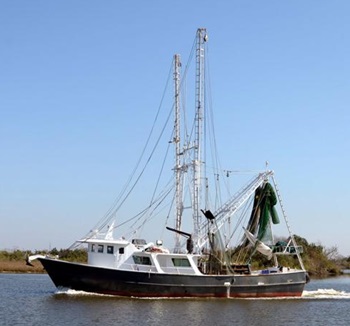 I’ve been a shrimper for over 45 years. It’s more than just a job; it’s a legacy that’s been passed down through generations in my family. Since I was 15, I’ve been working in the waters of Plaquemines Parish, my workplace, my passion, and my source of livelihood. Today, as I continue to bring the finest Gulf shrimp to your tables, I find myself fighting not only for my job but for the very soul of Louisiana’s shrimping heritage. The recent rule by the National Marine Fisheries Service (NMFS) mandating the use of Turtle Excluder Devices (TEDs) on skimmer trawl vessels longer than 40 feet is a real threat to our community. This rule, though it may seem well-intentioned, is an example of overreach and disregard for our industry’s reality. more, >>click to read<< 13:44
I’ve been a shrimper for over 45 years. It’s more than just a job; it’s a legacy that’s been passed down through generations in my family. Since I was 15, I’ve been working in the waters of Plaquemines Parish, my workplace, my passion, and my source of livelihood. Today, as I continue to bring the finest Gulf shrimp to your tables, I find myself fighting not only for my job but for the very soul of Louisiana’s shrimping heritage. The recent rule by the National Marine Fisheries Service (NMFS) mandating the use of Turtle Excluder Devices (TEDs) on skimmer trawl vessels longer than 40 feet is a real threat to our community. This rule, though it may seem well-intentioned, is an example of overreach and disregard for our industry’s reality. more, >>click to read<< 13:44
Louisiana Shrimp Association sues federal government over turtle excluder device requirement
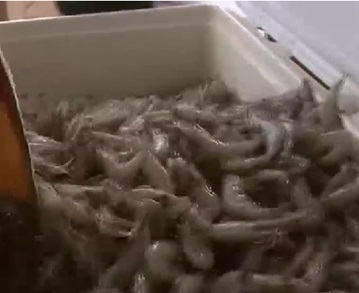 The Louisiana Shrimp Association (LSA) has filed a lawsuit against the National Marine Fisheries Service (NMFS) regarding a 2019 rule that requires the installation of turtle excluder devices (TED) on fishing trawlers. TEDs have been required on shrimp trawlers in certain circumstances since 1987 in order to separate sea turtles, sharks, and other large bycatch so they can escape through an opening in the netting. But in 2015, the ocean conservation organization Oceana sued the government arguing that the rules were insufficient and claiming that over 53,000 estimated sea turtles were still being killed via shrimp nets each year. Video, more, >>click to read<< 19:32
The Louisiana Shrimp Association (LSA) has filed a lawsuit against the National Marine Fisheries Service (NMFS) regarding a 2019 rule that requires the installation of turtle excluder devices (TED) on fishing trawlers. TEDs have been required on shrimp trawlers in certain circumstances since 1987 in order to separate sea turtles, sharks, and other large bycatch so they can escape through an opening in the netting. But in 2015, the ocean conservation organization Oceana sued the government arguing that the rules were insufficient and claiming that over 53,000 estimated sea turtles were still being killed via shrimp nets each year. Video, more, >>click to read<< 19:32
Senator John Kennedy works to bring Louisiana shrimping industry back to life
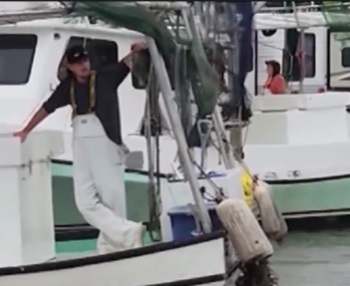 The $36 million purchase from the United States Department of Agriculture (USDA) of the Louisiana shrimping industry was done to help alleviate some of the issues the industry has been struggling with for years. United States Senator John Kennedy (R- La) says although he applauds the purchase, more still needs to be done to save the industry. Acy Cooper with the Louisiana Shrimp Association agrees with the senator the purchase does help, but additional assistance is needed to save one of Louisiana’s biggest industries. Video, more, >>click to read<<12:41
The $36 million purchase from the United States Department of Agriculture (USDA) of the Louisiana shrimping industry was done to help alleviate some of the issues the industry has been struggling with for years. United States Senator John Kennedy (R- La) says although he applauds the purchase, more still needs to be done to save the industry. Acy Cooper with the Louisiana Shrimp Association agrees with the senator the purchase does help, but additional assistance is needed to save one of Louisiana’s biggest industries. Video, more, >>click to read<<12:41
Rep. Garret Graves wants federal funding to reduce imported seafood, aid Louisiana fishery
 U.S. Rep. Garret Graves and Lt. Gov. Billy Nungesser are calling for more federal funding to test imported seafood and tighter regulations to slow the influx of foreign catch onto Louisiana’s seafood market. Both Graves and Nungesser shared separate though somewhat similar proposals recently with the Louisiana Seafood Safety Task Force, which is working to address a struggling domestic fishery and the increasing health threats from imported foreign seafood. Foreign catch has become so cheap that it now comprises nearly 90 percent of all seafood consumed in America, according to the Louisiana Seafood Promotion & Marketing Board. more, >>click to read<< 15:30
U.S. Rep. Garret Graves and Lt. Gov. Billy Nungesser are calling for more federal funding to test imported seafood and tighter regulations to slow the influx of foreign catch onto Louisiana’s seafood market. Both Graves and Nungesser shared separate though somewhat similar proposals recently with the Louisiana Seafood Safety Task Force, which is working to address a struggling domestic fishery and the increasing health threats from imported foreign seafood. Foreign catch has become so cheap that it now comprises nearly 90 percent of all seafood consumed in America, according to the Louisiana Seafood Promotion & Marketing Board. more, >>click to read<< 15:30
Lawmakers form Seafood Caucus to help Louisiana fishermen
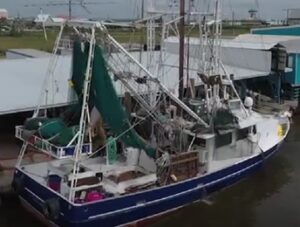 Consumers likely don’t think twice about where the shrimp or seafood bought at grocery store comes from, but Louisiana fisherman—and now federal lawmakers—are asking people to pay attention. “We’re losing an industry and a culture and a way of life in Louisiana and across the country,” said Acy Cooper, who comes from a long line of shrimpers. He says what was once a reliable profession has now become heartache. It’s not just a problem in Louisiana—which is why lawmakers from all four of the country’s coasts are joining together to find a solution. Video, >>click to read<< 10:28
Consumers likely don’t think twice about where the shrimp or seafood bought at grocery store comes from, but Louisiana fisherman—and now federal lawmakers—are asking people to pay attention. “We’re losing an industry and a culture and a way of life in Louisiana and across the country,” said Acy Cooper, who comes from a long line of shrimpers. He says what was once a reliable profession has now become heartache. It’s not just a problem in Louisiana—which is why lawmakers from all four of the country’s coasts are joining together to find a solution. Video, >>click to read<< 10:28
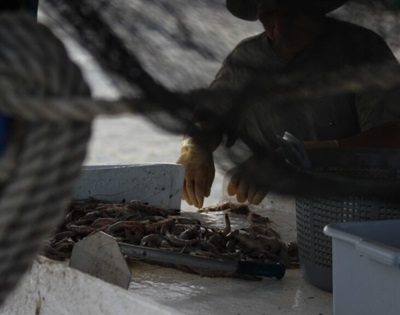
That ‘Gulf’ shrimp you ate probably wasn’t from the Gulf of Mexico
What if every imported seafood product for sale in Louisiana had a red sticker with the word “Imported” affixed to the front of its packaging? That question is one of several the state Seafood Safety Task Force is asking in an effort to address a struggling domestic fishery and increasing health risks from imported catch. The task force met Friday for just the second time in over a decade following a long dormant period that ended last month. State Sen. Fred Mills, R-St. Martinville, chairs the task force that he said will try to develop solutions to address three areas: the health and safety of consumers, the economy of the domestic seafood sector, and consumer education. An influx of cheap foreign catch has flooded the seafood market in Louisiana, and most restaurants in the state choose to serve imported shrimp and crawfish to patrons who are either oblivious to it or mistakenly believe they’re eating local fare, according to the Louisiana Shrimp Association. The effects have decimated a local industry and unique Louisiana culture while also potentially introducing harmful contaminants into the food supply. >>click to read<< 11:52
Louisiana shrimpers, lawmakers unite to protect domestic fisheries as season begins
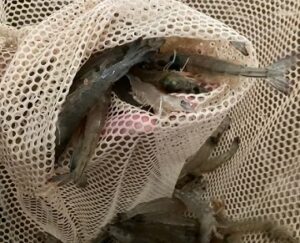 The Louisiana Shrimp Association joined in a letter that said the influx of imported shrimp has proven especially problematic for domestic harvesters. Nineteen other allied organizations and companies, representing more than 4,000 seafood businesses of the U.S. Gulf of Mexico and South Atlantic region also signed onto the letter. “Despite rising costs for fuel and labor, the price of Gulf shrimp, for example, has not increased since 1980. For the past 40 years, the average dockside price of Gulf shrimp has ranged from $1.50-$2.00 per 2 pounds,” the letter said. The Louisiana Legislature on June 6 presented House Concurrent Resolution 113 to the Secretary of State. The resolution urges Congress to ban the import of shrimp and crawfish from outside the United States. >click to read< 11:24
The Louisiana Shrimp Association joined in a letter that said the influx of imported shrimp has proven especially problematic for domestic harvesters. Nineteen other allied organizations and companies, representing more than 4,000 seafood businesses of the U.S. Gulf of Mexico and South Atlantic region also signed onto the letter. “Despite rising costs for fuel and labor, the price of Gulf shrimp, for example, has not increased since 1980. For the past 40 years, the average dockside price of Gulf shrimp has ranged from $1.50-$2.00 per 2 pounds,” the letter said. The Louisiana Legislature on June 6 presented House Concurrent Resolution 113 to the Secretary of State. The resolution urges Congress to ban the import of shrimp and crawfish from outside the United States. >click to read< 11:24
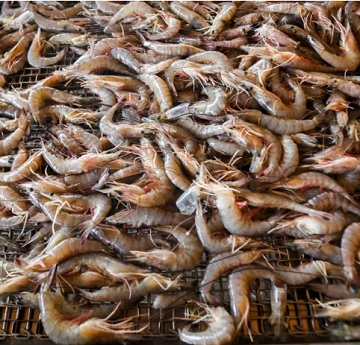
Letter: Pleas for help from Louisiana shrimpers fall on deaf ears
The Louisiana shrimp industry is in crisis; putting our 15,000 jobs and $1.3 billion industry at risk. During the legislative session, hundreds of shrimpers, dock owners and processors marched on the State Capitol to call out unwanted competition from imported shrimp. Louisiana plays a significant role in the U.S. shrimp market, accounting for 25% of the nation’s demand. But imports from Thailand, Vietnam, Indonesia and Ecuador are flooding U.S. markets, resulting in distressed prices for our product. >click to read< 08:06
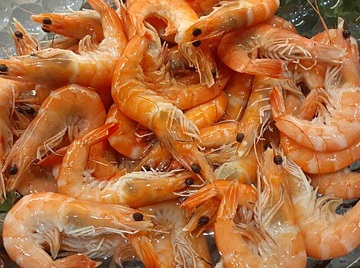
There have been 2,600 violations of Louisiana’s imported shrimp law — and no fines
Health inspectors have recorded more than 2,600 violations of a 2019 Louisiana law that requires restaurants and other food establishments to indicate on their menus if they’re selling imported shrimp or crawfish, but the state hasn’t levied a single fine for those violations since the law took effect. It’s a problem local fishermen have been calling attention to for years. Foreign seafood has become so cheap that it is almost ubiquitous. According to the Louisiana Shrimp Association, most restaurants in the state have chosen to serve imported shrimp and crawfish to patrons who are either oblivious to it or believe they’re eating local fare. >click to read< 10:49
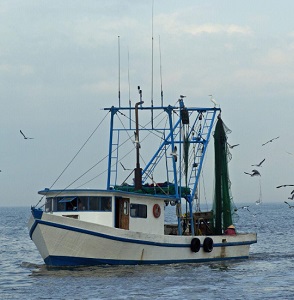
Louisiana: Lawmakers taking action to protect state’s seafood industry
Fishermen in Louisiana are suffering from imports and they’re worried about the future of the seafood industry in the state. It’s why lawmakers are putting tougher restrictions on imports to help struggling shrimpers. Fishermen say they are at risk of losing their livelihoods due to inflation and the abundance of imported seafood. It’s why shrimpers stood on the capitol steps urging lawmakers to do something. Louisiana Shrimp Association President Acy Cooper has been a fisherman in Louisiana for 45 years. He said he hopes he is able to keep it alive so that his grandkids can carry on the legacy. >click to read< 09:12
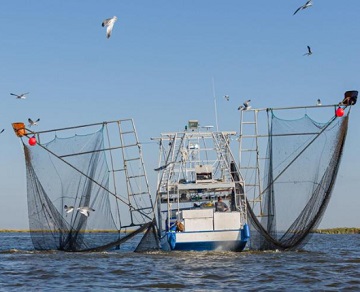
Covid shutdowns and hurricanes rock Louisiana seafood industry
During the pandemic, the state’s seafood industry shut down. Once business resumed, a series of storms and hurricanes wiped out areas where those who rely on the state’s plentiful harvests of crawfish, shrimp, crabs, oysters and alligators make a living. The double-whammy took a devastating toll on Louisiana, the nation’s second-largest seafood supplier, and when it fully recovers remains to be seen. “There’s still boats stranded in certain areas,” said Samantha Carroll, executive director for Louisiana Seafood. While the 2022 season offered a reprieve with no hurricanes, “people were still trying to pick up the pieces,” struggling to find fuel, bait, and other essentials, she said. >click to read< 14:52
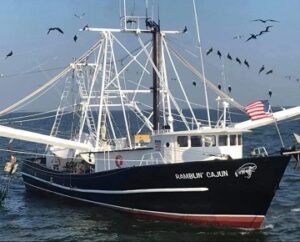
Louisiana Shrimping Industry Faces Uncertain Future in 2023
Shrimpers now face some of the lowest prices they have ever seen due to massive amounts of shrimp being imported from overseas, according to Larose-based trade group Louisiana Shrimp Association. Acy Cooper Jr, the Louisiana Shrimp Association’s president, says the math around shrimp imports are simply not in the Louisiana shrimp industry’s favor. With Louisiana able to meet roughly 25% of the overall U.S. shrimp market demand – shrimp importers from countries like Thailand, Vietnam and Indonesia have brought to market more shrimp than the United States will typically consume each year, driving the price on the open market for Louisiana shrimp lower and lower. >click to read< 13:53
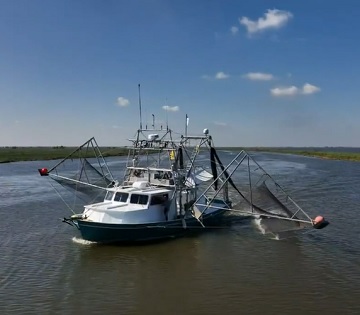
‘Without us, you don’t have Louisiana:’ Struggling shrimpers warn lawmakers industry is on brink of collapse
For longtime shrimp boat captain Kip Marquize, it’s a race against time. “We are the heart of Louisiana. Without us, you don’t have Louisiana,” Marquize said as he navigated the channels out of Delacroix and deep into the bayous of St. Bernard Parish. “What I see is our whole state losing its identity on the world stage.” The biggest challenge they face is the sheer mass of shrimp currently being imported by the United States. “The importers, they got so much coming in, they’re starting to buy infrastructure,” Cooper said. “They’re buying freezers. They’re trying to buy processing plants. When they do that, you’re pushing us completely out. “We’re about to lose this industry.” video, >click to read< 14:34

US Shrimpers struggling to find buyers
Lafitte Frozen Foods in Violet can process up to 120 thousand pounds of shrimp per day. Friday was the plant’s last day of operation, at least for now. “This is the first time we’ve ever had to actually say hold it, we’ve got to take a break,” company VP Bobby “Capt. Bob” Samanie said. “We have so much problem with foreign shrimp coming in, it’s killing us.” Local shrimpers like Ricky Robin say when factories start to shut down – the ripple effect is crushing. “When they hurt the factories, they hurt the commercial fishermen that sells to the factories,” Video, >click to read< 10:25
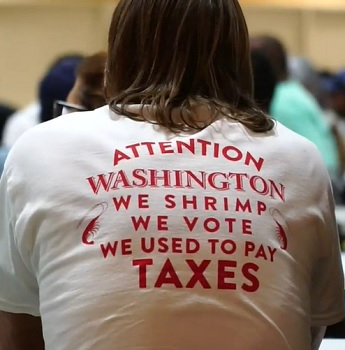
Louisiana shrimpers call for legislators to take action, cap shrimp imports
“We have begged and pleaded for years and years and years for help, and we’ve been shunned, disregarded, ignored continuously,” said Captain Kip Marquize. “No longer can a blind eye be turned to our cause, it just cannot happen any longer. We will be completely extinct.” The Louisiana Shrimp Association held a “State of the Industry” meeting in Cut Off on Tuesday, with the goal of gathering as many shrimpers as they can to call on legislators to take action. “We have coasts that are just full of shrimp, we have processors that can’t sell shrimp, we have docks that can’t get rid of them,” said Acy Cooper, President of the Louisiana Shrimp Association. “We have people that just can’t go out because they can’t get rid of the shrimp, and there’s no need for that.” Video, >click to read< 10:09
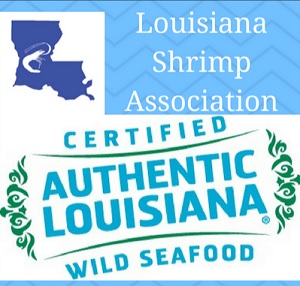
Louisiana Shrimpers want lobbyist to help voice their concerns in Washington
The Louisiana Shrimp Association is fighting back against imported shrimp and their goal is to save their livelihood. They want their voices to be heard in Washington D.C. and in Baton Rouge. President of the L.S.A., Acy Cooper, said they have had a lot of issues in the industry. “The prices went from four dollars a pound down to a dollar twenty. It is getting dyer need. We have been screaming and hollering. This task force has been together since two thousand and ten. We can’t get anybody in Washington to do the job that we need.” >click to read< 07:49
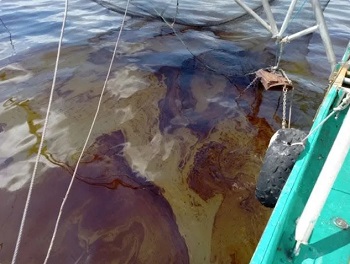
Oil spill in Terrebonne Bay on opening day of shrimp season causes grief for fishermen
A Terrebonne Bay oil spill on the first day of Louisiana’s inshore shrimp season has taken a toll on some local fishermen, who say they received no warning of the incident until many hours after it occurred and as a result ended up with fouled nets and oiled boats. The Coast Guard said it was notified through the National Response Center at 3:01 a.m. Monday that a tank platform collapsed at the Hilcorp Caillou Island facility in Terrebonne Bay. “I went out on the opening and I kept pushing all that night,” said Terrebonne Parish shrimper John Sophin. “I didn’t know about the spill, nobody warned me, I didn’t know where it was at.” >click to read< 08:54
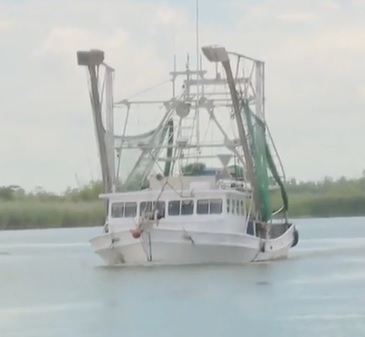
‘I don’t know where the breaking point is at’: A look at the threats the Louisiana seafood industry faces
Whether it’s crawfish, crabs, fish, shrimp or oysters, Louisiana is known for its seafood. The seafood industry is one of Louisiana’s largest employers. But the Louisiana seafood industry is threatened. “We are accountable for one-third of the seafood in this country. That’s something to be proud of,” said Mitch Jurisich, the chairman of the Louisiana Oyster Task Force and a third-generation oyster farmer. “But the industry, it seems like we’ve been under attack for several years now.” Those we talked to in the shrimp and oyster fishing business say there are problems gripping the seafood industry, including price, government projects and natural disasters. Let’s start with the price. Video, >click to read/watch< 21:44
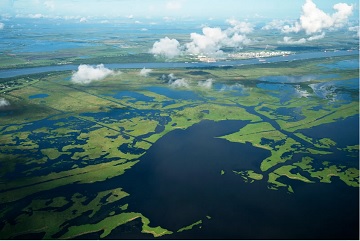
The Controversial Plan to Unleash the Mississippi River
“There’s not a son of a bitch in this parish, or within this industry, that doesn’t want coastal restoration,” Acy Cooper, the president of the Louisiana Shrimp Association tells me when I find him repairing his boat in Venice, the southernmost harbor on the Mississippi River. Cooper is a third-generation shrimper; he knows that if the marshland is not saved, that chain will come to an end. The necessary gradient of water will disappear, replaced by salty ocean. So Cooper supports some projects—using dredged mud to build marsh, for instance—but worries that the diversion will make the water near Venice too fresh, pushing shrimp out into the Gulf. The small boats used by many shrimpers can’t travel that far. He compares the diversion to a gun held to his head: “Either let me die slowly and I can adapt, or you just pull the trigger and kill me now. That’s the way I feel about it,” he says. “If you pull the trigger now, I’m dead.” The Army Corps’ draft environmental impact statement, released in spring 2021, confirmed many of Cooper’s worst fears,,, Big article, big read. >click to read< 19:22
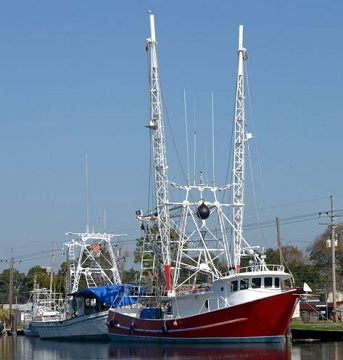
A Double Whammy: Louisiana shrimpers face high diesel prices, cheap imports
Record high diesel prices and competition from cheap, imported shrimp are hitting Louisiana shrimpers in the wallet and driving some of them out of business. Acy Cooper Jr. is a shrimper in Plaquemines Parish and the president of the Louisiana Shrimp Association. “Here in Louisiana, you can make a little bit of a living if you catch a few shrimp. We’re in between seasons now and once the shrimp starts slowing up, you can’t continue working at that price. A lot of folks are going to try to keep working, but once they see they can’t overcome it,” Cooper said of high fuel prices, “they’re going to shut down.”>click to read the article< 18:54
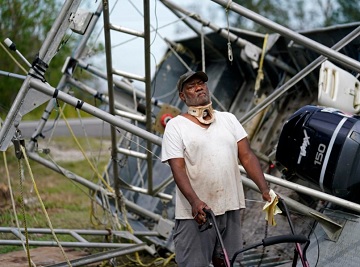
After Hurricane Ida: Louisiana’s struggling seafood industry is teetering
The Category 4 hurricane that struck Louisiana late last month fractured some parts of the industry even worse than 2005’s Katrina, which cost seafood businesses more than $1 billion. No one yet knows how many boats, docks and processors were lost because of Ida’s relentless, 150-mph winds. Vessels that made it to the safest harbors fared the best, yet even some of them were destroyed by the storm’s fury. Unable to speak for a decade since cancer surgery, Dale Williams gets by on disability payments of $1,300 a month. Living in a mobile home at Port Sulphur on the west bank of the Mississippi River, he supplements his income by catching shrimp with a little boat he parked in his front yard for Hurricane Ida. Ida’s Category 4 winds flipped Williams’ trawler on its side, bending the frame and tearing nets,,, The goal is to get back on the water by October, he said, either with the damaged boat or another one that fared better. >click to read< 10:44
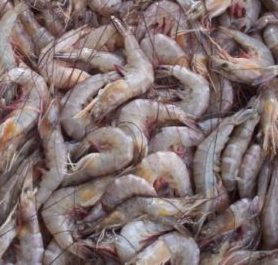
Louisiana Shrimp Association donates shrimp to Second Harvest Food Bank
A food pantry in New Orleans has received nearly 2,500 pounds of shrimp to help families in need during the COVID-19 pandemic. Second Harvest Food Bank is the recipient of the donation, announced Friday by Lt. Gov. Billy Nungesser and the Louisiana Seafood Promotion and Marketing Board. The donation, which will cover a few pounds each for families, was given by Ronnie Anderson and David and Kim Chauvin, owners of Bluewater Shrimp Company, based in Dulac, Louisiana. >click to read< 08:28
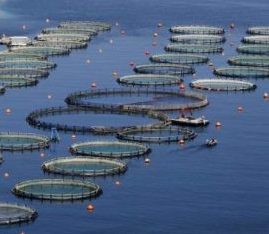
Plan for fish farm off Florida’s Gulf Coast raises environmental concerns
A Hawaiian fish farming company wants to expand into the Gulf of Mexico near Sarasota, Fla., prompting opposition from some fishing associations and environmental groups.,,, Although it’s only proposed as a demonstration project, such a plan pits the company’s desire to increase the local seafood supply against commercial fishing interests and some environmental groups, which believe industrial fish farms do more harm than good in the long run.,, The U.S. Environmental Protection Agency has green-lighted the Florida project,,, Other groups that oppose Kampachi’s project include the Louisiana Shrimp Association, Friends of the Earth and the Recirculating Farms Coalition >click to read< 10:44
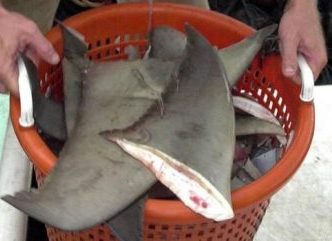
Reintroduced Shark Trade Bill Promotes Successful U.S. Conservation Policies at Policies at Global Level
The Sustainable Shark Fisheries and Trade Act of 2019 – A bipartisan bill introduced in the U.S. House advances global shark conservation by ensuring that all shark and ray products imported into the United States meet the same high ethical and sustainability standards required of American fishermen. The bill has broad support from conservation groups, zoos, aquariums and the fishing industry. >click to read<13:14






